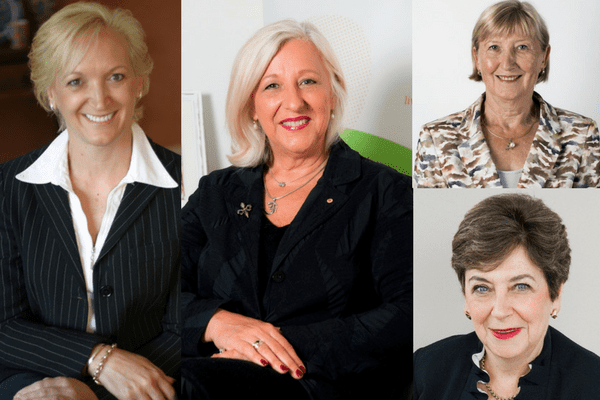Our conversation began on a sobering note: how did domestic violence fall off the COAG agenda?
How did three women die in NSW in four days without so much as a statement from the Premier? Without a press conference from the minister for women?
How is an issue that has killed four women in a single week not a matter of national security? https://t.co/GMWnwajsbt #auspol #COAG
— Women's Agenda (@WomensAgenda) October 5, 2017
How is an issue that kills women and destroys lives, every single week, not a matter of national security?
These questions are particularly troubling for Henry.
“The reason I personally find this quite disturbing is that 18 years ago, three women, myself, Rosemary Calder and Jo Cavanagh, were actually advisers to the then-Prime Minister John Howard on the issue of DV,” Henry explains.
Three women killed in one week in one state is a crisis. https://t.co/GkO99d3vj4
— Georgie Dent (@georgiedent) October 2, 2017
While Calder and Cavanagh advised the Office for the Status of Women about policy and the social impact, Henry was the financial adviser charged with crunching the numbers and calculating what domestic violence costs.
“We spent a year travelling around Australia doing presentations to corporates saying ‘This is not just a societal issue – it’s an issue for business’.”
It dovetailed with an advertising campaign that was broadcast on TV and in cinemas, in the early 2000s called Domestic Violence. Australia Says No.
Dr Kay Patterson was the minister responsible and she travelled with Henry during the awareness raising roadshow, presenting and taking part in the role plays in capital cities.
“We had functions at lunchtime and in the early evening and we had 100, 150 even 300 people turning up, with the minister being part of the message,” Henry recalls. “We also prepared really good material for employers on how to identify DV and where to go. It was a toolkit for people in business to see the impact and point them in right direction.”
After the campaign finished, Henry says DV dropped off the agenda.
“It went quiet, to my dismay, for a decade. In the past three years since Rosie Batty became Australian of the Year it was on the agenda but people now think ‘oh we’ve done that’,” Henry says. “Like diversity and inclusion, domestic violence is not a destination. It is a journey we need to go on for months, years and decades. We are not nearly done.”
Not even close. And it sounds like there was more appetite from the federal government for change back then, than there is now.
Sobering is just the beginning.
You can listen to the podcast here.



